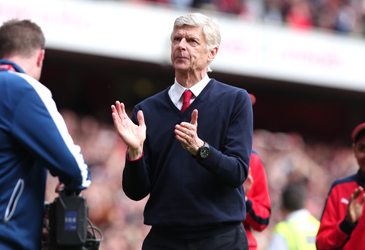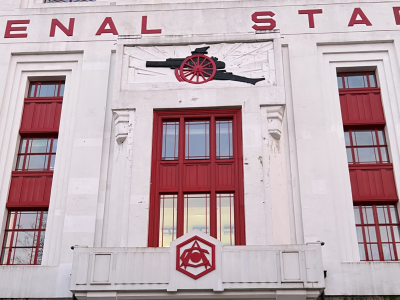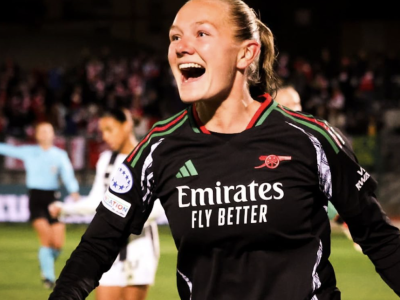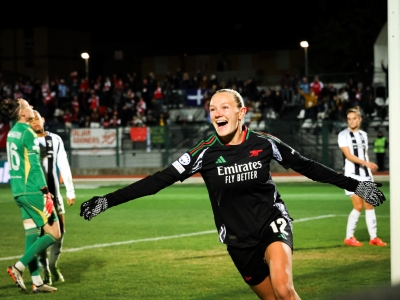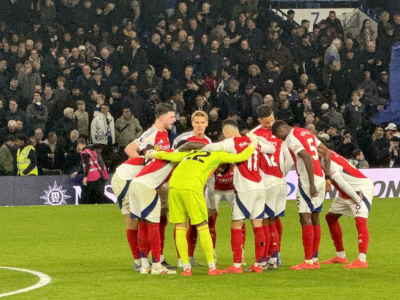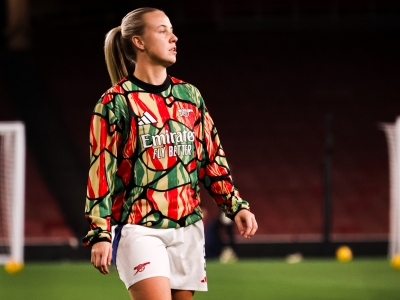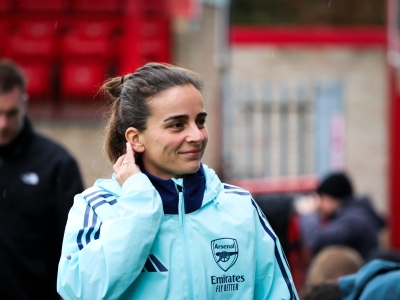One of the least controversial quotes in the career of controversial former Conservative MP Enoch Powell came a few years after his defection from the Tories to the Ulster Unionists in 1977, claiming that: ‘all political lives, unless they are cut off in midstream at a happy juncture, end in failure, because that is the nature of politics and of human affairs’. This statement also seems to be true of pretty much all former Arsenal managerial giants to some extent, with the exception of Herbert Chapman who was cut off midstream at a rather unhappy juncture of passing away at the height of his powers at Highbury, from pneumonia just a few days into 1934 at the age of just fifty five.
All other Arsenal managers who have enjoyed success – George Allison, Tom Whitaker, Bertie Mee, Terry Neill, Don Howe (trophy-less as boss, but the tactical mastermind behind the Double winners and triple-Cup Finalists of the 1970s) and George Graham all faced a decline before the end of their reign (even though the latter was sacked for something other than Arsenal’s on-pitch performances). Arguably therefore, Wenger’s decline seems to be following in some sort of Highbury tradition, with the exception of the fact that none of the aforementioned were ultimately deemed by the Arsenal board to be irreplaceable (with the exception of the unfortunate Tom Whitaker, who died of a fatal attack while holding office after the strain of restoring Arsenal to greatness proved too much in October 1956).
Not being old enough to testify first hand whether Allison or Whitaker endured a campaign for their removal amongst Arsenal fans during their less successful period, dissent at the performance of latter four managerial giants is either something well documented or a personal memory of which I can testify. None of whom however endured the presence of the internet and social media, which funnily enough has probably made pushing the case for removing Wenger harder rather than easier due to the fact that certain voices on the internet have rather over simplified the case for his exit, which is actually a far more complex matter than they’ve ever acknowledged and certainly not one you can justifiably reduce to a soundbite you can bear on a placard to wave inside a stadium for Sky Sports to pick out on camera.
From a personal point of view, the internet and social media have been disastrous for the discourse of modern life – be it Football, Politics or whatever – and personally, really something of an enormous let down. Ten years ago, I was kind of optimistic that social media finally gave the man on the street a voice to express himself. Ten years later however, I’m beginning to empathise with Sid Vicious’s response when asked by a journalist if he made music for the man on the street - his answer being: ‘no, I’ve met the man in the street and he’s a c***!’ (and yes, before anyone points it out, the irony of me personally expressing this to the world at large on social media via an internet blog isn’t lost of me either!).
The trouble with social media is that - though it gives everyone a voice - that too also includes people either not bright enough, or articulate enough to put it to constructive use. Social media can often be ‘Platitude City’ – a place where people frequently confuse a right your own opinion with a right to an uncontested opinion, or even a right to your own facts. It’s often a place where discussion often gets replaced with argument, hence the rise of ‘trollism’ over the last decade which has often left me wondering whether world at large is incrementally becoming like participating in a never ending episode of that human form of bear-baiting known as the Jeremy Kyle Show.
With regard to the Wenger In/Out question, trollism really isn’t the preserve of one side or the other. Over the last five years or so of writing on this rather protracted and boring argument via this website and Twitter, I’ve personally been shot at by keyboard warriors on both sides of the fence. It is however the ‘Wenger Out’ Brigade’s trollism that depresses you most, because personally I think they’ve been in the right on this argument all along, but the reason in their argument has often been drowned out in over-simplification and personal abuse, which has been reductive and has if anything undermined the cause for Wenger’s exit for the best part of five years at least.
Firstly, though Arsenal have undoubtedly experienced a decline over the last decade, it’s one of a relative nature rather than an absolute decline which makes the case for Wenger’s removal all the more problematic. In the late nineties and early noughties, Arsenal enjoyed a run of eight straight seasons finishing in the top two, which is a run the club never even enjoyed during their previous two periods of sustained League success in the thirties under Chapman and Allison, nor in the late eighties and early nineties under George Graham. People often wrongly equate Wenger’s current situation to that of Brian Clough’s demise, which is wildly inaccurate.
Clough ultimately relegated Nottingham Forest, while Wenger in comparison is still yet to fall out of a qualification spot for a Champions League place. Around a decade ago an oligarchy of perpetual Champions League qualifiers developed – Chelsea, Man United, Liverpool and Arsenal. Ten years on, only one of these Clubs qualified this season - also the only one with an unbroken record of qualification in the years since - Arsene Wenger’s Arsenal. All of the other aforementioned sides have also experienced a relative decline too in the years since. In light of this, when Arsenal fans complain about Wenger’s finishing positions, they run the risk of opposition fans (particularly those of historically less successful sides, like say West Ham or even this year’s Champions Leicester City) viewing us in comparison as spoilt whingers with a sense of entitlement to success.
People have wrongly claimed that Wenger’s reputation is one built on fraud and the man too has been accused of being an under achiever, though nothing can be further from the truth - Wenger happens to be the Club’s most ever successful manager. No other Arsenal boss can boast of three championship title wins, he’s won the FA Cup as many times as all of his Arsenal predecessors put together and though he hasn’t won a European trophy, he has qualified for European competition for twenty seasons in a row (over the thirty years that preceded the post-Heysel ban for English clubs, Arsenal had only qualified for European competition on eight occasions). Wenger also oversaw if not the greatest Arsenal side of all-time, certainly the best side of my lifetime.
My latest #ThrowbackThursday/#FlashbackFriday series of articles has reminded me that, though I thoroughly enjoyed George Graham’s early pre-Premiership side (the latter post-Premiership Graham era, though a successful Cup side, were dire to watch and anyone who tells you differently is revisionist to say the least), none of GG’s sides were anywhere near as good as that of Wenger’s team of the early noughties - which encompassed achievements such as the invincible season, scoring for fifty five consecutive games in a row and remaining unbeaten away from home for two seasons out of three (all of which are feats that are highly unlikely to be repeated in the top tier of English football).
People also point to the players which Wenger inherited from George Graham to downgrade the man’s legacy – a stance which refuses to acknowledge that working effectively with the experienced and talented players you inherit is a skill in itself and probably one that if George Graham could have mastered the knack of, might have brought him even more success than he actually did enjoy. People forget that on the road to Anfield ’89 players like Kenny Sansom, Viv Anderson and Steve Williams were probably discarded too soon - the latter two before adequate replacements were found and the departure of the former probably thrusted the captaincy on Tony Adams too early (TA even hints here @04.00 that such pressures and dealing with his boss as a go-between with the players in some way aided the onset of his drink problems).
Also, Post-1991 obvious talent such as Anders Limpar and Michael Thomas were ousted in favour of average players in comparison, such as David Hillier, John Jensen and Steve Morrow (not to mention that back in the early nineties Paul Davis was banished to the reserves for a year for no apparent reason). It’s interesting that few of GG’s old guard that Wenger inherited have ever had a bad word to say about the latter, while George Graham’s extreme disciplinarian tendencies were often likened to despotic middle eastern tyrants, with the man acquiring nicknames such as ‘Gadaffi’, ‘The Ayatollah’ or ‘Saddam’ by his former players.
George also left Wenger with nothing in the way of a midfield by the mid-1990s. Some have attributed David Dein with much of the post-Graham talent which Arsenal acquired, though I highly doubt that Dein would have known of a young twenty year old French midfielder languishing AC Milan’s reserves called Patrick Vieira. And of course, the biggest hole in the theory that Wenger owed a debt to George was that by the peak of his achievements in 2004, only two of Graham’s old boys – Ray Parlour and Martin Keown - were left at Highbury and were by then pretty much on the fringes of things, rather than core members of the side.
So after building up what sounds like the case for Wenger’s defence, many of you will probably wonder why is it that I feel that the Wenger Out Brigade are in the ones in the right on this matter. Because as I’ve stated prior – there are clear and sound reasons for his exit. Even though an absolute decline hasn’t yet occurred, stagnation doesn’t equal progress either. Since moving to our new ground Arsenal have finished fourth on six occasions and third on four occasions. This season we have moved up to second, though again notably on the back of a winning run put together after the pressure of a title chase had evaporated.
Though Arsenal habitually qualify for the Champions League, they have been eliminated in the second phase for six straight seasons. Arsenal are most probably the biggest club in Europe never to have been crowned European Champions (a view which this site concurs with) and the fans should realistic expect a more convincing attempt at winning the Champions League if we're going to habitually qualify, otherwise we’ll simply become European Football’s equivalent of what Coventry City used to do in the old First Division – hang on to our place within the elite every season, but never really make any waves.
Wenger may well have returned to winning trophies in recent seasons with back to back FA Cups in 2014 and 2015, however again nearly choked in the Semi Final and Final in 2014 and last season were faced a with an Aston Villa side in freefall which made losing the final practically impossible once the first goal went in. With nine trophy-less seasons out of eleven, Arsene Wenger has undoubtedly shown consistency in failing to move Arsenal up to the next level over the last decade. The back to back Cup wins in 2014 and 2015 should have given this side confidence and knowledge of how to handle the pressure of one off big games (a vital ingredient for winning a title), but this season’s collapse shows that it clearly hasn’t.
Wenger therefore is undoubtedly a manager living off past glories – if you disagree with that, let’s imagine for a second that his reign started in 2006, instead of 1996. Would he have lasted long enough in the job to see Cup glory again in 2014 without facing the sack? Highly unlikely seeing that no other Arsenal manager has managed to last nine trophy-less seasons without losing their job. Let’s not re-write history here, George Graham’s side on the road to Anfield ’89 had excellent starts in the league in 1986/87 and 1987/88, but crumbled in the second half of the season in both. In 1988/89 they were providing a masterclass in how to blow a title. In 1989/90 people forget they had a run of failing to score for six games out of seven between January and March, which severely wounded their title defence and ultimately saw them finish below Spurs.
One thing you couldn’t accuse George Graham’s Arsenal of however was failing to learn from when they came up short, which is why they ultimately won six trophies in eight full seasons. Wenger’s last decade in contrast however seems to be dogged by repeating the same errors over and over, which indicates that this incumbent Arsenal board seem to be handing Arsene Wenger a licence to repeatedly fail. Undoubtedly, one element of this repeated failure is an area where Wenger most definitely seems to be a pigmy in comparison to George Graham – that of team tactics and motivation of the Arsenal side.
You could never imagine Wenger pulling off an Anfield ’89 style victory in the manner described here by Perry Groves, where George seemingly carried out his pre-arranged plan to defeat the greatest side of the era, overwhelmingly against the odds, to a tee. In contrast, even when Arsenal were consistently winning trophies under Wenger, you could never really say that the man ever had a tactical edge over other sides. Arsenal either played them off the park or they lost. And when you play with a side that doesn’t contain the like of Thierry Henry, Robert Pires, Dennis Bergkamp or Patrick Vieira, the occasions in which you play the opposition off the park are in comparison much less.
You get the feeling also that Wenger doesn’t psychologically prepare his side for the high pressure games in the same way as Graham did either. It’s interesting to note that from ‘The Invincibles’ documentary (@31.02) , in the week when Arsenal lost the FA Cup Semi Final against Manchester United, were eliminated in the Champions League Semi Final at home to Chelsea and found themselves 1-2 down at home to Liverpool on Good Friday, the rousing half time speech which turned the situation around came from Martin Keown and not Arsene Wenger. When Wenger arrived at Highbury, senior players noted that he was the only boss they’d ever encountered who never raised his voice and one wonders whether motivating his troops was something Wenger outsourced to the senior players within his squad.

